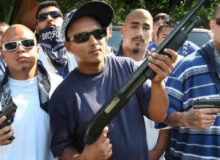(July 10) My friend John is my everyday-life hero of this summer, but the real star in his tale is Little League Baseball, as a stand-in for all those local, community-based endeavors that are prototypical exemplars of American life.
And, to give away the ending, yes, consider this a paean to Edmund Burke’s idea (amplified by Alexis de Tocqueville) of the importance of the “little platoons” of private and nonpolitical civic life.
But that’s getting ahead of myself. Here’s John’s tale, one that will thrill aficionados of baseball as it was played before the pro game became nothing but strikeouts and homers.
John is a dad who volunteers as a Little League coach (12- and 13-year-olds) on the Eastern Seaboard. His team didn’t feature the biggest, strongest players, but it had some real gamers. John figured that if his guys couldn’t regularly bash the long ball, they should find other ways to compete. They spent lots of time, then, practicing bunting and other lost tools of the trade…. [Editor’s note: The story of John’s team gets into the “you’ll-never-BELIEVE-this” realm. Then comes a transition….]

Forgive the personal aside, but John’s final double-header loss reminded me of my own most vivid Little League memory. I was an avid player, tiny but with some skills, yet for various reasons was sitting out the summer as a 10-year-old. Then the team of my 12-year-old brother, Haywood, who was tall and strong for his age, found itself unexpectedly short-handed due to family issues of several of his teammates. To avoid forfeits, my brother’s coach and my father together successfully petitioned the league to let me play above my age range, in the 11- and 12-year-old league, on my brother’s squad. As it turned out, I did OK, and the team, with Haywood as the star, did great,… but…. [The rest of this column, and Haywood’s role, AND a broader, American lesson, is at this link.]






